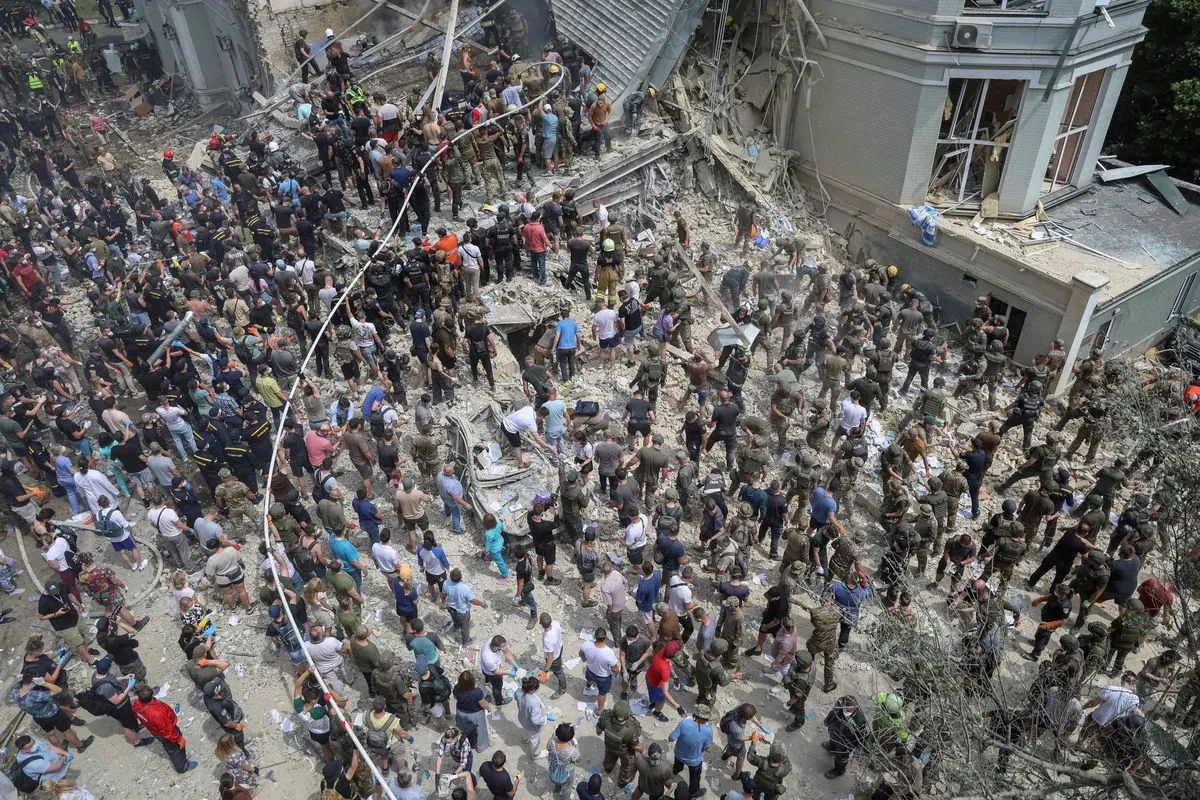Ukrainian authorities have accused a Russian air force commander of ordering a missile strike on a children's hospital in Kyiv, resulting in two fatalities and significant damage. The incident, which occurred on July 8, 2024, has drawn international attention and prompted a visit from the International Criminal Court (ICC) prosecutor.
Sergei Kobylash, identified by Ukraine's SBU security service as the commander of Russia's long-range aviation forces at the time of the attack, is suspected of ordering the launch of a Kh-101 air-launched cruise missile. The Kh-101 is a sophisticated weapon capable of being deployed from various platforms, including aircraft and ground-based systems.
Ukraine's Prosecutor General, alongside ICC Prosecutor Karim Khan, addressed reporters outside the damaged Okhmatdyt hospital, one of the largest pediatric medical facilities in the country. Khan stated that evidence from multiple sources points to the use of a Kh-101 cruise missile in the attack.
"It does seem from a number of sources and the work that's been done that a missile, a Kh-101 cruise missile, has been identified. A number of factors have to be looked into further."
The ICC, established in 2002, has jurisdiction over four main crimes: genocide, crimes against humanity, war crimes, and the crime of aggression. While Ukraine is not a member of the ICC, it has accepted the court's jurisdiction for crimes committed on its territory since 2013. This allows the ICC to investigate and prosecute alleged war crimes in the ongoing conflict.
In March 2024, the ICC issued an arrest warrant for Kobylash, suspecting him of war crimes related to strikes on Ukraine's energy infrastructure. The court has also issued warrants for six Russian officials, including President Vladimir Putin, on charges related to the unlawful deportation of children from occupied parts of Ukraine.
Russia has consistently denied committing war crimes in Ukraine and dismisses the ICC as biased. Russian officials argue that the court's warrants have little real-world impact, as Russia is not a member of the ICC, having withdrawn its signature from the Rome Statute in 2016.
Ukraine's campaign to prosecute alleged war crimes by Russian forces is ongoing, with over 140,000 cases under investigation. The principle of command responsibility, which holds military commanders accountable for crimes committed by their subordinates, is likely to play a crucial role in these investigations.
ICC Prosecutor Khan emphasized the importance of compliance with international law for all parties involved in the conflict:
"Every leader, every pilot, every soldier - every person has a choice to comply with the law or join this list of infamy of people for whom warrants for crimes against humanity or war crimes have been issued."
As the investigation continues, the international community watches closely, with the use of precision-guided munitions in urban areas remaining a subject of debate in international humanitarian law.
